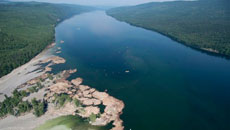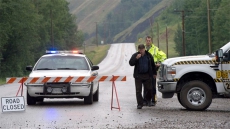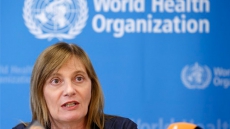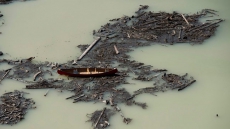OTTAWA - Nunavut wants to deal with its alcohol problem by opening the territory's first beer and wine store.
Soon Iqaluit residents will have their say and, if there's enough support for the idea, the government plans to open up a store on a trial basis.
How long it stays open depends on how well the experiment goes.
"I think that we'll probably give it a good year — but it depends on the severity, as well," said Chris D'Arcy, deputy minister of Nunavut's Finance Department.
"Anecdotally, if the police are seeing more people staggering around and creating a mess, we'll shut it down and say, 'OK, that was a good try. Maybe we'll try again some other time.'
"We're kind of not expecting that. We're hoping that the gains will outweigh any of the short-term losses."
The booze rules differ across the territory. Some communities ban all liquor. Some let elected committees decide who can bring alcohol into the community, and how much. Some put limits on the amount of alcohol people can buy. And some have no rules besides the territory's general liquor laws.
Liquor hasn't been sold in stores in Iqaluit since the 1970s. People can either drink at one of the city's bars or order alcohol from a warehouse and have it shipped in from Rankin Inlet. Residents of Rankin Inlet have to order their liquor from a warehouse in Iqaluit. Everyone else in the territory can order their alcohol from either warehouse.
The thinking behind the warehouse system is to create a delay between the time alcohol is ordered and when it is consumed.
But a recent change to Nunavut's liquor laws would let people get their booze straight from a storefront at their local warehouse.
It may sound counterintuitive or perhaps even misguided to make it easier to buy wine and beer in a territory plagued by rising alcohol consumption, heavy binge drinking and a growing number of babies born with fetal alcohol syndrome.
But what Nunavut's government is hoping is that people will change their drinking habits once the store opens.
Right now, D'Arcy says, people tend to binge-drink hard liquor they've bought from bootleggers. But they may not drink as much alcohol if they're only allowed to buy limited quantities of beer or wine.
"We're hoping that people will change," D'Arcy said, "that their paradigm will shift from buying a 60-ounce of vodka from a bootlegger at $180-a-bottle to buying a flat of beer or some wine from the beer and wine store."
The change won't happen overnight. Both D'Arcy and the local RCMP detachment are bracing for more alcohol-related problems than usual once beer and wine go on sale at the warehouse.
Earlier this year, Staff Sgt. Monty Lecomte told Iqaluit's city council he expects the Mounties will receive more calls than usual at first before things eventually return to normal.
The hope is that this short-term pain will put an end once and for all to the territory's long-standing problem with bootlegging.
When the Nunavut government struck a task force a few years ago to review the territory's liquor laws, bootlegging was identified as one of the biggest concerns.
The Nunavut Liquor Commission estimates that half the spirits it sells are resold illegally. That's about 33,500 bottles of hard liquor — which, at an average bootleg price of $300 a bottle, works out to around $10 million a year.
The store isn't expected to be a big money-maker for the government, D'Arcy said. But what it will hopefully do is cut into the bootleggers' business.
Greenland took a similar approach years ago to deal with its own alcohol problem, which has been largely successful. Now Nunavut hopes to replicate the success of its neighbour.
"I personally think that it's worth a shot," D'Arcy said. "It is not good to have people getting a 60-ounce of vodka, regardless of the price, and consuming so much in one fell swoop."





